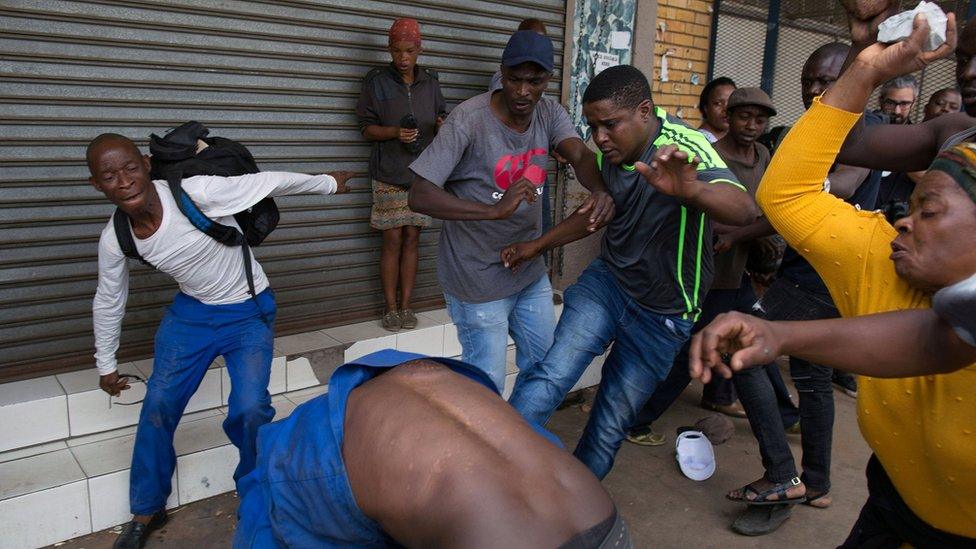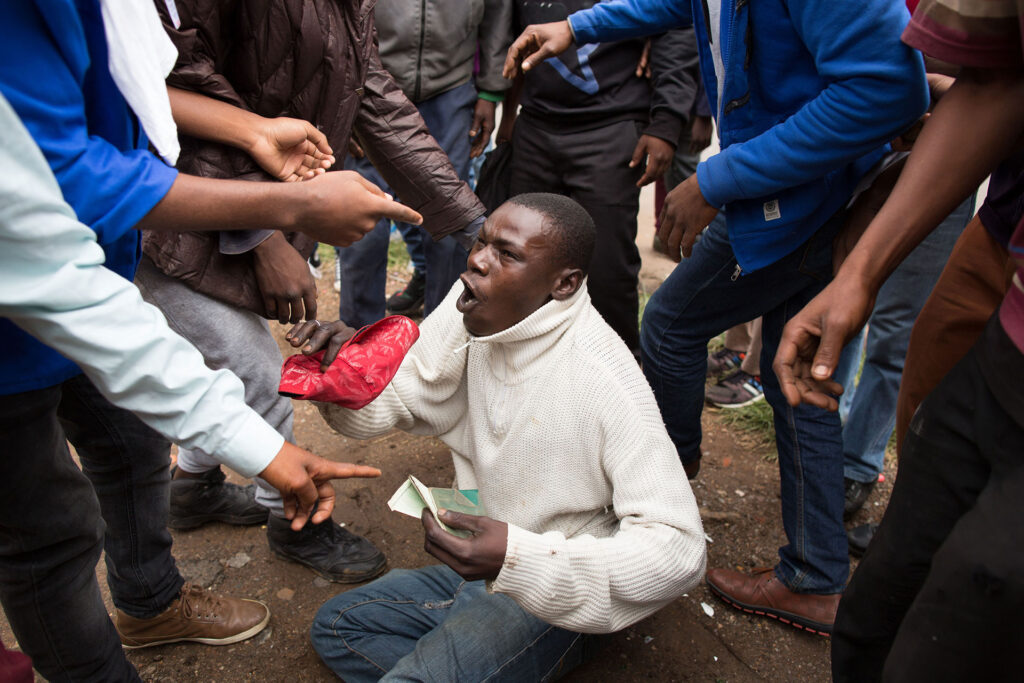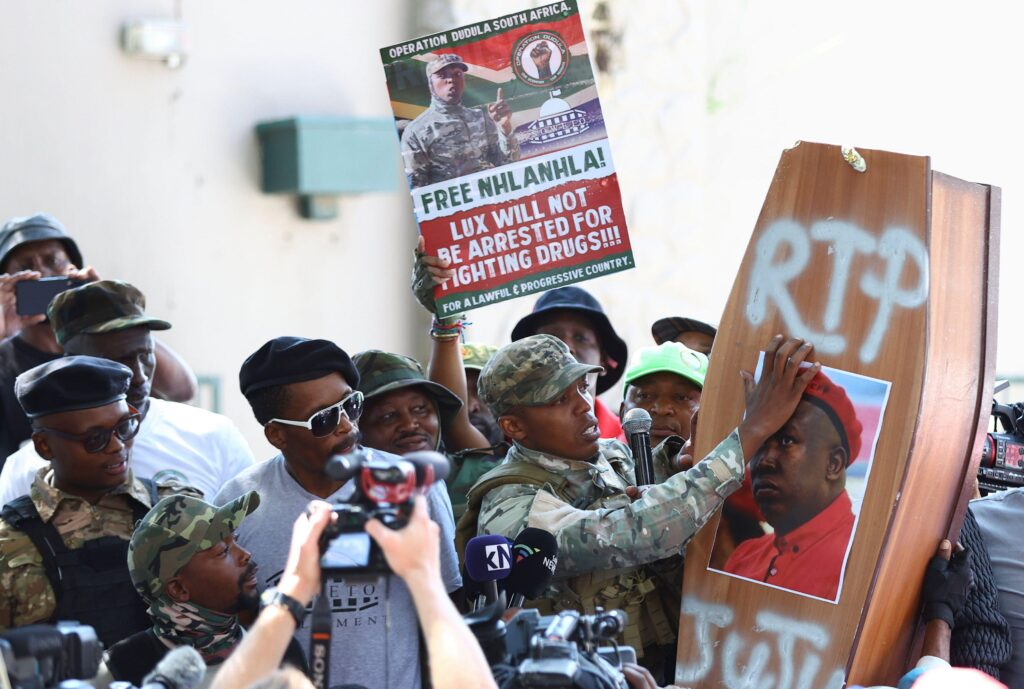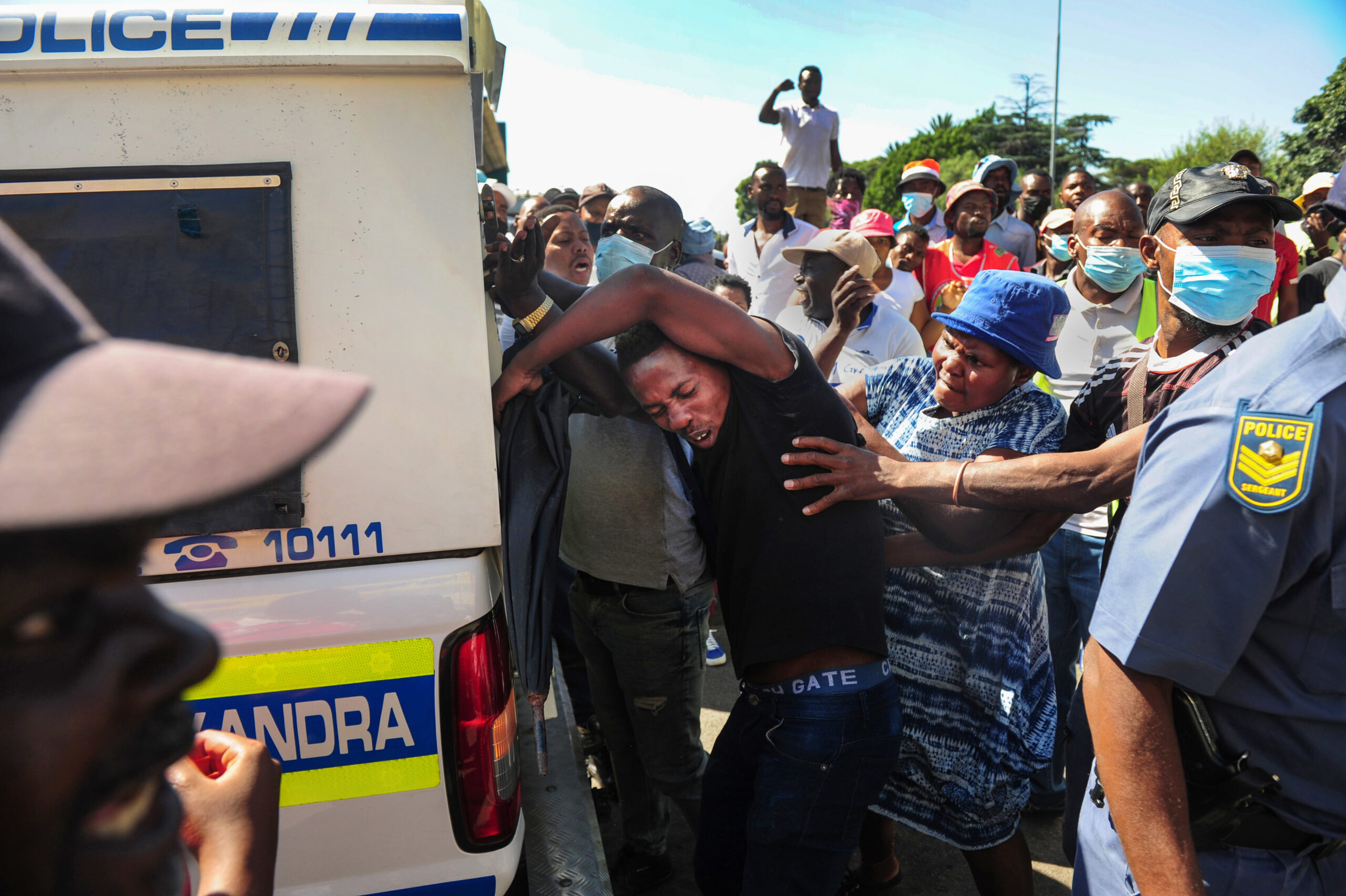Illegal immigration is a concern that is leading to an increase in police operations and mass deportations in South Africa. But are these operations being carried out to ensure security, or are they a violation of human rights? A data-driven investigation.
Public support has accompanied a stark rise in the number of police operations and mass deportations over the past few years in South Africa. This has also elicited international condemnation. High-profile campaigns against foreign nationals have been launched by the government following mounting pressure to control illegal immigration as well as the upsurge in criminality.

But these crackdowns raise serious concerns. Are they truly about national security and law enforcement, or are they politically motivated actions that violate human rights and stoke xenophobia?
This article examines the most significant police operations and deportation campaigns in South Africa, their legal framework, their real-world impacts and the debate on public order and human dignity.
What do these operations involve? A typical immigration enforcement operation by the South African police is a cordon-and-search of the areas where there is a high percentage or propensity of finding illegal immigrants. These consist of the following:
• Cordon-and-search operations
• Mass apprehensions and dragnets
• Identity controls on public transportation
• Lindela Repatriation Center holds
Some are government-centric operations, while others, such as Operation Dudula, emanate from the civil side, although in many instances it is with the tacit approval or the indirect support of state actors.
Major operations in recent history
🛡️ Operation Fiela was carried out after xenophobic attacks in Gauteng and KwaZulu-Natal. It targeted undocumented immigrants as well as drug dens and illegal businesses.
• More than 15,000 arrests in the first phase
• Racial profiling and arbitrary detention, criticised
• Excessive use of force, condemned by the UN and civil society groups
⚔️ Operation Dudula (2021–present)
This is a civilian-led movement and has turned into a nationwide phenomenon. It calls for the removal of undocumented immigrants from workplaces and communities.
• With violence and looting
• At rising xenophobia
• No legal mandate, but with local support

🚨 2022-2024: DHA, SAPS CRACKDOWN
Deportations have been stepped up by the Department of Home Affairs:
• Over 95,000 foreign nationals deported in 2022-2023
• Raids in the Johannesburg CBD, Hillbrow, Durban, and Cape Town
• Extortion, abuse of custody, and rights violations alleged
Chart: Deportations in South Africa (2015-2023)
Year Deportations
2015 28,400
2017 31,300
2019 23,900
2022 47,900
2023 48,200
Source: DHA, ACMS, Human Rights Watch
The case for mass deportations
1. Border security
South Africa has long, porous borders with Zimbabwe, Mozambique, and others. Authorities say deportations help control illegal entry and smuggling.
2. Public order
The operations are supposedly to curb drug trafficking, illegal trade, and gang te activity especially in high-crime areas.
3. Resource management
This does not attack immigrants but upholds the law. “Criticism: Are these operations human rights abuses?”Guards and legal experts raised red flags. 1.
Human Rights Watch reports revealed that there was a lot of harassment of black foreigners, even if they were in the country legally and did not have documents.

2. Attacks while being held
Lindela has faced repeat claims for:
• Putting too many people there
• Taking too long to send them back
• Not giving enough help for the law
• Hitting people
3. Broken families and scared kids
After big sweeps, many kids are left without their moms and dads because the parents are taken. Others are scared to go to hospitals, schools, or markets.
4. Fanning the Flames of Fear
Groups like Dudula have made vigilante mobs stronger by mixing up operation tasks of immigration law and launching cruel attacks on immigrants.
“In their hands, law enforcement is being used to victimize rather than safeguard,” said Lawyers for Human Rights (LHR) in a 2023 report.
Legal and ethical framework
• The South African Constitution upholds the right to dignity, safety, and security of everyone, whether they are in the country legally or not.
• The Immigration Act (2002) gives the right to hold peop¬le and send them back, but there must be a proper legal process.
• The Refugee Act (1998) No return of asylum seekers in areas of danger.
Many bypass or ignore, especially operations that take place without a warrant, or in an emergency.
International response
• Criticism over deportations not following refugee protocols by UNHCR and IOM.
The African Union has called for restraint and adherence to the Continental Migration Framework.
South Africa could damage its credibility in human rights diplomacy and leadership in peacekeeping.
Pathways to a balanced approach
To reconcile national security with human rights, South Africa should do the following:
1. Reform deportation procedures
Make sure all deportations are in accordance with the due process of law, with access to legal advice and interpreters.
2. Strengthen border management, not raids
Use technology, intelligence sharing, and humanitarian policies rather than door-to-door raids.
3. Regularize migrant status
Open ways to become legal for people who have been here a long time, especially those who add to the economy.
4. Aim at criminal groups, not race
Concentrate on illegal organizations and badness—not lots of arrests based on where someone is from or what language they speak.
5. Teach the police and immigration workers
Put human rights learning and responsibility into the training for people who enforce the law.
South Africa has real difficulties in migration management, border control and ensuring public safety. In the conditions that are now set, large-scale police actions and deportations do more harm than good, as they usually set the populace against the outsiders, do harm to the innocent families and violate the values of the Constitution.
The true path to security is through balanced policies, strong institutions and respect for human dignity. Immigration enforcement should be legal, targeted and appropriate—not an excuse for a crackdown or to play to the gallery.
FAQs
1. Is deportation legal in South Africa?
Yes, but it must be in accordance with due process under the Immigration Act and the Constitution.
2. What is Operation Dudula?
A civilian-led anti-immigration campaign targeting undocumented migrants and businesses, widely criticised for xenophobia.
3. Are asylum seekers protected from deportation?
Yes. The Refugee Act prohibits expulsion, but violations still occur.
4. The Lindela Repatriation Centre
This is a detention centre for foreign nationals kept until they can be deported. It has been criticized for both abuse and overcrowding.
5. The Number of People Deported per Year
This is estimated to be about 48,000 in 2023, up from the numbers in 2022.
6. Does This Reduce Crime
The evidence is mixed. In addition, focusing on immigrants might take the focus away from the deeper causes of urban crime.
7. A Humane Alternative is
Pathways for legalizing things, fair processes in law enforcement, and migration policies that are inclusive and respect human rights.
